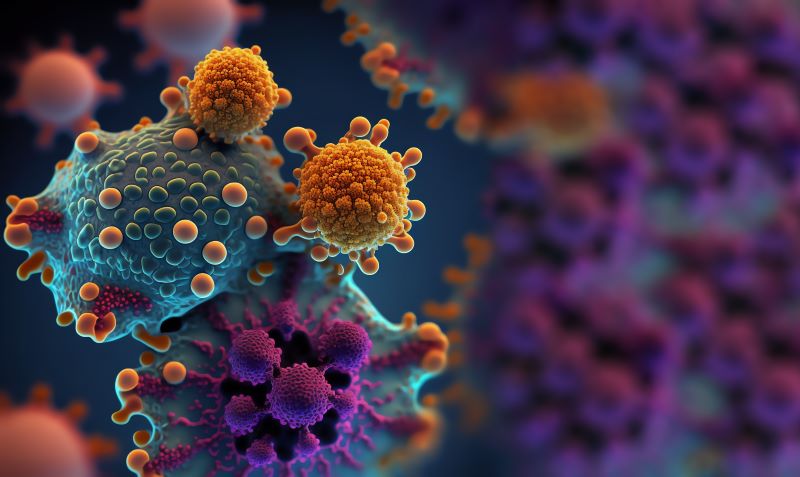Twenty-five reports of rare blood cancers in patients who had received CAR T-cell therapy prompted agency’s warning
By Physician’s Briefing Staff HealthDay Reporter
WEDNESDAY, Jan. 24, 2024 (HealthDay News) — Citing recent indications that CAR T-cell therapy may cause rare secondary cancers, the U.S. Food and Drug Administration has told pharmaceutical companies to add a boxed warning to their products.
However, FDA spokesperson Carly Kempler told NBC News that despite the new warning, “the overall benefits of these products continue to outweigh their potential risks.” Twenty-five reports of rare blood cancers in patients who had received CAR T-cell therapy prompted the agency to add the boxed warning, Kempler said.
In 2017, the first CAR T-cell therapy, Novartis drug Kymriah, was approved by the FDA. Additional therapies have since been approved. The makers of five of these drugs — Bristol Myers Squibb, for Abecma and Breyanzi; Gilead Sciences’ Kite Pharma, for Yescarta; Johnson & Johnson’s Carvykti; and Novartis, for Kymriah — must submit proposed label changes in the next 30 days to note that CAR T-cell therapy can raise the risk for rare blood cancers, the FDA said. If the drugmakers disagree, they can submit a rebuttal explaining why a change is not needed, NBC News reported.
In a statement, a spokesperson for Novartis said the company has not found “sufficient evidence” to support a link between cancer and its treatment. However, the company will work with the FDA to update its label “appropriately,” the spokesman said. Spokespersons for Johnson & Johnson and Gilead Sciences also told NBC News that they would work with the agency to update their labels. A spokesperson for Bristol Myers Squibb said the company is evaluating “next steps” following the FDA notice, although it has not seen any cancer cases associated with its treatment.
CAR T-cell treatments are still relatively new, so the FDA has required the makers of these therapies to conduct 15-year follow-up studies to measure the potential risk for secondary cancers.
The FDA “is not saying that every single one of the cases they’ve reported has clearly shown CAR T has led to this, but more that there may be an association,” Matthew Frigault, M.D., clinical director of the Massachusetts General Hospital Cellular Immunotherapy Program in Boston, told NBC News. “This is what the FDA does. They look for a signal.”
NBC News Article
Copyright © 2024 HealthDay. All rights reserved.








